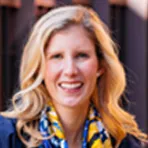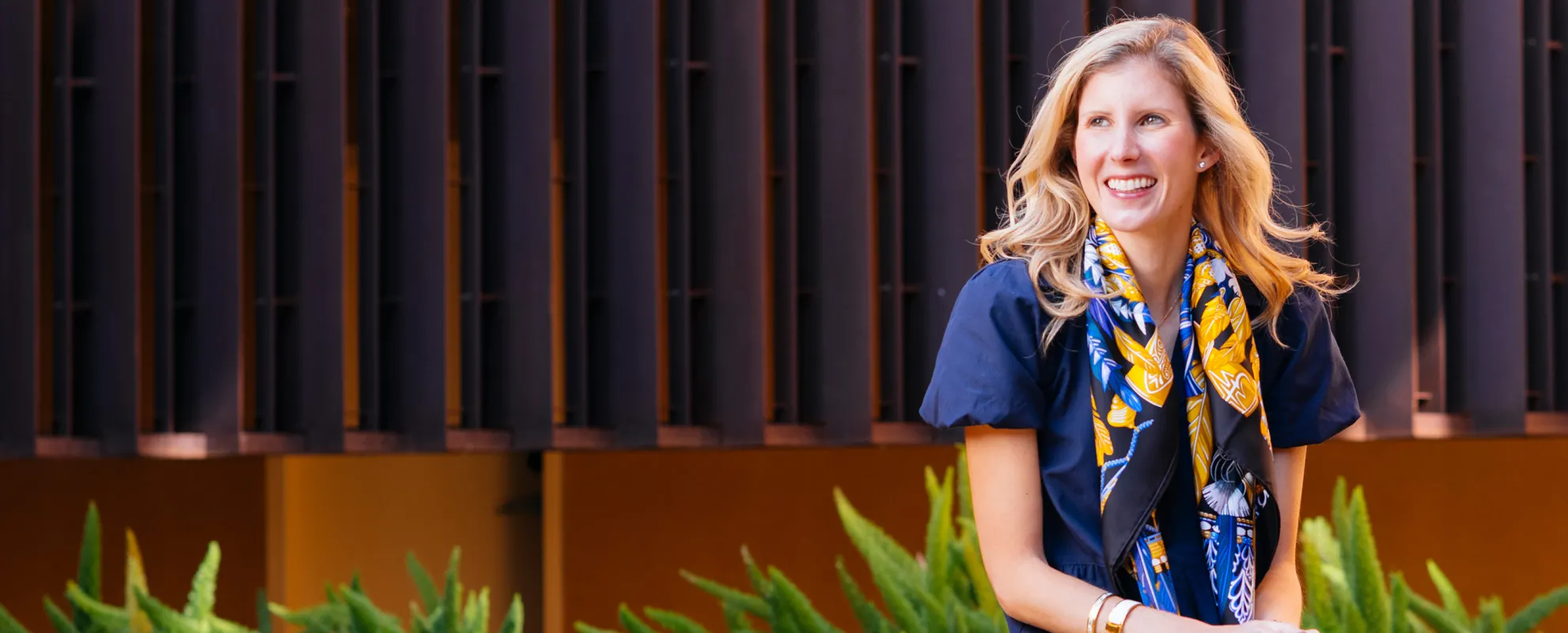Suburban Chicago native Phoebe Park describes herself as the offspring of two self-made entrepreneurs — a mom who built a business in architecture and interior design and a dad who developed commercial real estate and now works in asset management. “They both came from really humble backgrounds,” Park explains. “I admire their hustle and grit, their commitment and perseverance, and they really taught me the internal rewards of hard work.”
Park took that appreciation for entrepreneurs with her to Dallas, where she earned both bachelor’s and master’s degrees in accounting at Southern Methodist University. “I knew I wanted to study business, and accounting seemed like a way to get a foundation, and it offered some flexibility,” she says. “My dad studied accounting, though he never worked as an accountant. You get experience with business problems, and I knew I could pivot and apply that to many things.” She started her career as an auditor for a small Dallas accounting firm, working mostly with clients who built and operated family-owned businesses.
From there, Park moved to J.P. Morgan Private Bank in Dallas, where she rose from analyst to vice president and banker, leading a team that provided high-touch, bespoke financial services to clients in the areas of investing, lending, banking, and estate and wealth transfer planning. Park played other roles at the bank as well, including facilitating collaboration across lines of business, hosting client events on various topics, and partnering with the firm’s International Private Bank to assist clients from countries such as Australia and India in maximizing efficiency of their global estate plans as well as diversification strategies. She also developed employee training content on deferred compensation and estate disposition, and managed the summer analyst program in Dallas.
Now a student in the MSx Program at Stanford GSB, Park is focused on developing the management abilities that she’s long admired in her clients and learning from fellow students who’ve led organizations. She serves as co-president of her MSx class.
Your training and your first job were in accounting. Why did you make the switch to wealth management, and what did you learn as an auditor that helped shape your approach?
As an auditor, people don’t love when you show up, though it’s a great way to learn about business. Because I was with a smaller firm, I got to work with a lot of different types of clients in different businesses — industrial, manufacturing, health care, software, and retail, to name a few — and I really developed a great appreciation for what people were creating, and what they were passionate about. I think that allows me to create value for those sorts of people at the Private Bank. I got a sense of how wealth is being created all around us, in unique ways. I came to realize the potential to help people manage their wealth. I wanted to work with the same types of clients, but in a role that was much more aligned on the same side of the table with them. As an auditor, I was also in the weeds of how family businesses were structured and operated. This helped me understand many nuances that impacted clients’ personal financial decisions.
Were there challenges in making the transition?
In the Private Bank, my job was to think strategically about the future, instead of mostly opining on what happened in the past. But this also was a big driver of my decision to transition to banking, and it became a source of great enjoyment for me.
What was your approach working with high net-worth clients?
I was responsible for client relationships and thinking strategically with clients to accomplish their goals. People can manage investments through a lot of different sources. It doesn’t have to be a wealth management firm. In my opinion, the greatest source of value we provided was thinking strategically about an individual’s personal balance sheet and optimizing that to achieve what they want to do — whether they want to do something charitable, or they want to give to family, or they want to start another business. How do you help this person achieve their goals with their financial resources most efficiently? It’s not the same for every family, which made my job interesting. No one is the same. If you want to create value, there is no simple equation for it.
What skills do you feel are necessary for success in private banking?
Strategic thinking and technical skills are absolutely critical, but the most important by far is having a passion for people and their passions. From establishing and carrying out a family’s charitable mission to building a Texas cattle operation to educating the next generation on financial well-being to structuring an international real estate portfolio — I was able to share in the excitement of my clients to aid in making their visions come alive, and this was by far the best part of the business.
What led you to come to the Stanford MSx program?
I really admired the leaders at J.P. Morgan that I worked with, and I also admired my clients, and the ability they had to lead and effectively manage businesses. I hadn’t really thought about going back to school, because I had already done a one-year master’s degree in accounting. I just didn’t know if I would take two years to do a full-time MBA. By coincidence, my former neighbor in Dallas had been in the MSx the year before, and we had a great conversation about it, and many of the things he mentioned about the program were things I was looking for, such as being able to take electives where you could fill your specific aspirations and career goals, and really bolster your skill set.
How has MSx helped your professional growth?
Being able to spend concentrated time with people from diverse backgrounds, so I can really learn from them. We have people from 37 different countries, and the average work experience is over 13 years. There are people who’ve built and sold companies multiple times, who’ve run global divisions of large multinational corporations. We have medical doctors, attorneys, senior military personnel, both active and retired. We were in an economics class, and someone in the class had actually run the airline ticket pricing for a global travel broker. To bring that perspective to the classroom and have a conversation around it is huge.
For the first half of the MSx program, I had the honor to serve as co-president of my class with my wonderful colleague Javier Araya Kopaitic. My background is primarily in running a business within a large, global organization, and Javi’s background is in the start up world. He’s a serial entrepreneur with two successful businesses. We approached problems completely differently, and I was able to learn so much from his way of thinking and leadership style. Javi is someone that I will continue to consult for advice throughout my professional career.
Another thing that really differentiates Stanford is that a lot of the lecturers in the classroom are actual business practitioners. Oracle CEO Safra Catz, who co-teaches the course on mergers and acquisitions with accounting professor Ron Kasznik, has led the company through nearly 150 M&A deals. So who better could you learn M&A from? And we’ve had so many incredible outside speakers who are friends of hers from the community, such as Lauren Hobart, the CEO of Dick’s Sporting Goods; Renee James, the CEO of Ampere Computing; and Evan Goldberg, founder of Oracle NetSuite.
I’m currently taking Conversations in Management from Asurion co founders Jim Ellis and Kevin Taweel, along with lecturer in management Sara Rosenthal. They grew a small search fund-acquired company into a global empire, and it is so valuable to have the opportunity to role-play tough business scenarios with them, receive real-time feedback, and learn from the perspectives of both the lecturers and my classmates.
Back in Dallas, you’ve been active in Texas Wall Street Women, an organization that works to increase opportunities for women in finance. What impact are you hoping to have with that effort?
It’s a great way to bring everyone together around the common goal of educating young women about the opportunities that could be available to them in finance and surrounding fields. We also have people involved who are attorneys, accountants, and other professions that aren’t necessarily directly in finance, but are complementary. We’ve helped a group of schools called the Young Women’s Preparatory Network, by going into the schools and talking to the students as well as having different events and raising money for the schools. Texas Wall Street Women is a great community of women that support other women, and we also have many male members that support the organization as well.
Photos by Elena Zhukova


